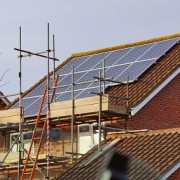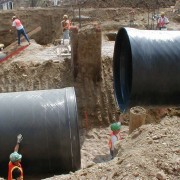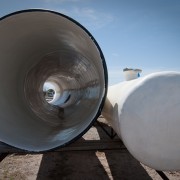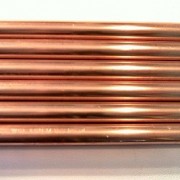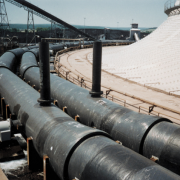Fiberglass Resins 101
 There are many fiberglass resins available and each has unique characteristics. You’ll want to discuss specific applications and operating conditions with a resin supplier and or the engineer and design services team you’ve selected to work with on your FRP project. This will help to ensure that your resin selection is appropriate and in concert with your service needs and specifications. Similarly, the engineers you work with may want to view detailed chemical resistance resin data when making critical design considerations. You can typically find this data in a resin manufactures selection guide.
There are many fiberglass resins available and each has unique characteristics. You’ll want to discuss specific applications and operating conditions with a resin supplier and or the engineer and design services team you’ve selected to work with on your FRP project. This will help to ensure that your resin selection is appropriate and in concert with your service needs and specifications. Similarly, the engineers you work with may want to view detailed chemical resistance resin data when making critical design considerations. You can typically find this data in a resin manufactures selection guide.
The most commonly used thermosetting resin families are vinyl ester, bisphenol-A fumarate polyester, teraphthalic polyester and isophthalic polyester. Similarly, each family or resin has its own unique usefulness depending on the application and operating conditions (i.e. temperature, pressure etc.)
Four Common Resin Families
- Vinyl ester
- Bisphenol-A fumarate polyester
- Teraphthalic polyester
- Isophthalic polyester
Provided below is some basic information that pertains to common resins used when designing FRP products for a wide range of industrial and commercial applications.
Polyester Resins are thermoset polyesters. They are versatile, offer good dimensional stability and have good mechanical, chemical-resistance and electrical properties.
Vinyl Ester Resins are flexible (double bonded vinyl group) in nature and are useful when creating products that are designed to withstand flexing, impacts or compression.
Epoxy Resins have an extended range of properties when compared to polyester and vinyl ester resins. They demonstrate extremely low shrinkage, good dimensional stability, high temperature resistance, as well as good fatigue and adherence to reinforcements. In addition, they have excellent resistance to basic (alkali) environments/solutions. Generally speaking, epoxies require heat curing to develop higher heat distortion temperatures.
Polyurethane Resins are known throughout the fiberglass industry for their durability and robustness. They are flexible in nature and can be used in a wide variety of applications.
Phenolic Resins posses many desirable attributes in the fiberglass world. They offer formability to complex contours, as well as flexibility. They are heat and chemical resistant and demonstrate flame retardance. They are ideal for high temperature applications where parts/components must meet fire safety, smoke emission, and combustion and toxicity requirements. In addition, they also have electrical non-conductivity characteristics.
Hybrid Resins are unique in that they are a customized blend of various resins and fillers to create superior properties that allow you to optimize your design and product.
For fiberglass products to perform right in the field, it takes more than just quality manufacturing and resin selection. It takes a high level of engineering and design skills with project related expertise – the kind that comes from years of experience. Beetle Plastic’s engineers have the experience, skills and the knowledge, to help you with virtually any project related to fiberglass and FRP applications.
Contact Us to learn more.

